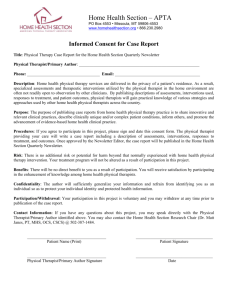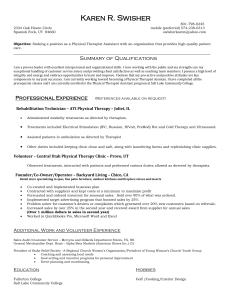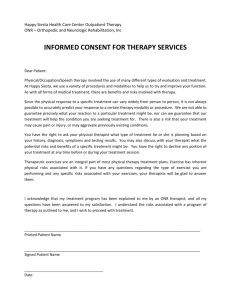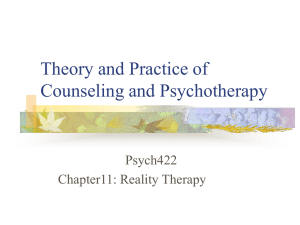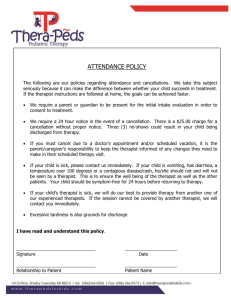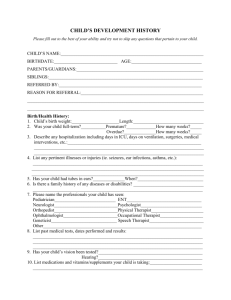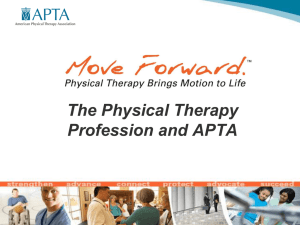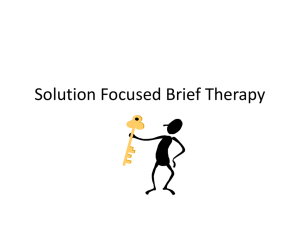PROFESSIONAL DEVELOPMENT, LIFELONG LEARNING, AND CONTINUED COMPETENCE IN PHYSICAL THERAPY
advertisement
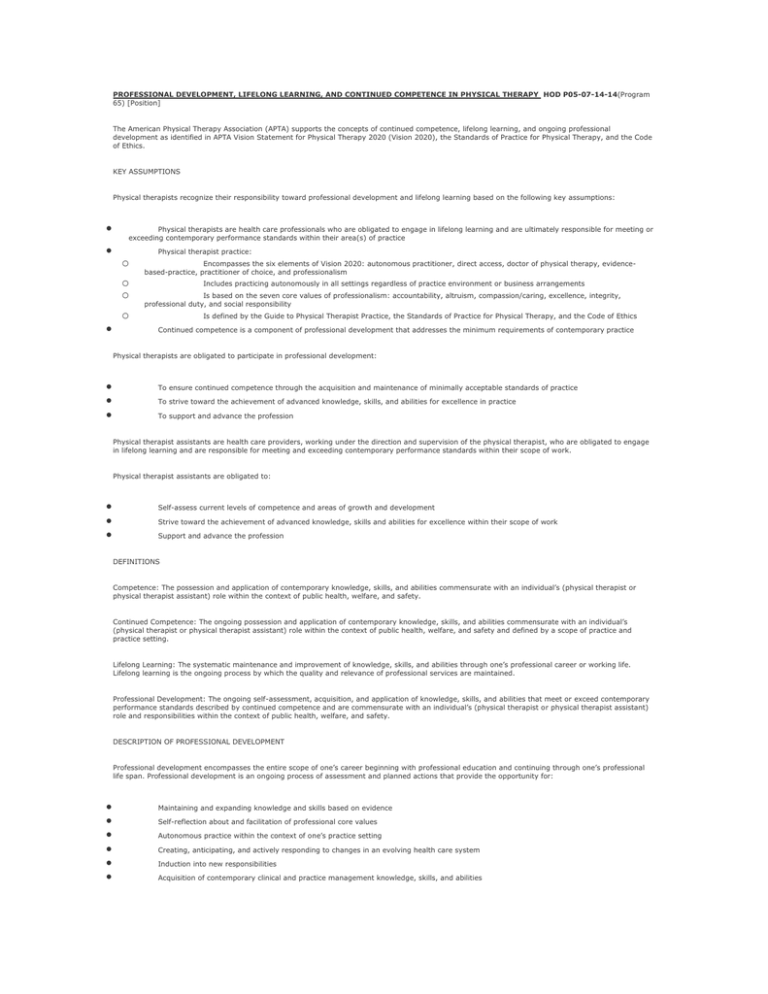
PROFESSIONAL DEVELOPMENT, LIFELONG LEARNING, AND CONTINUED COMPETENCE IN PHYSICAL THERAPY HOD P05-07-14-14(Program 65) [Position] The American Physical Therapy Association (APTA) supports the concepts of continued competence, lifelong learning, and ongoing professional development as identified in APTA Vision Statement for Physical Therapy 2020 (Vision 2020), the Standards of Practice for Physical Therapy, and the Code of Ethics. KEY ASSUMPTIONS Physical therapists recognize their responsibility toward professional development and lifelong learning based on the following key assumptions: Physical therapists are health care professionals who are obligated to engage in lifelong learning and are ultimately responsible for meeting or exceeding contemporary performance standards within their area(s) of practice o o o Physical therapist practice: Encompasses the six elements of Vision 2020: autonomous practitioner, direct access, doctor of physical therapy, evidencebased-practice, practitioner of choice, and professionalism Includes practicing autonomously in all settings regardless of practice environment or business arrangements Is based on the seven core values of professionalism: accountability, altruism, compassion/caring, excellence, integrity, professional duty, and social responsibility o Is defined by the Guide to Physical Therapist Practice, the Standards of Practice for Physical Therapy, and the Code of Ethics Continued competence is a component of professional development that addresses the minimum requirements of contemporary practice Physical therapists are obligated to participate in professional development: To ensure continued competence through the acquisition and maintenance of minimally acceptable standards of practice To strive toward the achievement of advanced knowledge, skills, and abilities for excellence in practice To support and advance the profession Physical therapist assistants are health care providers, working under the direction and supervision of the physical therapist, who are obligated to engage in lifelong learning and are responsible for meeting and exceeding contemporary performance standards within their scope of work. Physical therapist assistants are obligated to: Self-assess current levels of competence and areas of growth and development Strive toward the achievement of advanced knowledge, skills and abilities for excellence within their scope of work Support and advance the profession DEFINITIONS Competence: The possession and application of contemporary knowledge, skills, and abilities commensurate with an individual’s (physical therapist or physical therapist assistant) role within the context of public health, welfare, and safety. Continued Competence: The ongoing possession and application of contemporary knowledge, skills, and abilities commensurate with an individual’s (physical therapist or physical therapist assistant) role within the context of public health, welfare, and safety and defined by a scope of practice and practice setting. Lifelong Learning: The systematic maintenance and improvement of knowledge, skills, and abilities through one’s professional career or working life. Lifelong learning is the ongoing process by which the quality and relevance of professional services are maintained. Professional Development: The ongoing self-assessment, acquisition, and application of knowledge, skills, and abilities that meet or exceed contemporary performance standards described by continued competence and are commensurate with an individual’s (physical therapist or physical therapist assistant) role and responsibilities within the context of public health, welfare, and safety. DESCRIPTION OF PROFESSIONAL DEVELOPMENT Professional development encompasses the entire scope of one’s career beginning with professional education and continuing through one’s professional life span. Professional development is an ongoing process of assessment and planned actions that provide the opportunity for: Maintaining and expanding knowledge and skills based on evidence Self-reflection about and facilitation of professional core values Autonomous practice within the context of one’s practice setting Creating, anticipating, and actively responding to changes in an evolving health care system Induction into new responsibilities Acquisition of contemporary clinical and practice management knowledge, skills, and abilities Professional development should include the use of a wide variety of methods for attaining new knowledge, skills, and abilities including participation in continuing education courses, academic courses, independent study, journal clubs, Association committees, advocacy events and training, volunteer experiences, mentoring experiences, and on-the-job training. All professional development experiences should be: based on an assessment of need; generated from outcome objectives; planned for successful, progressive learning; and evaluated for attainment of delineated outcomes. A variety of methods, settings, and types of experiences should be employed to best meet the acquisition of new knowledge, skills, and abilities. ROLE OF THE ASSOCIATION The Association has the responsibility to interpret the concepts and scope of physical therapist practice in a manner consistent with APTA’s positions, standards, guidelines, policies, and procedures. Further, the Association has a responsibility to develop or encourage the development of policies, products, and services that address the current and future needs of members, the organization, and the profession in relation to career and professional development. Relationship to Vision 2020: Professionalism
